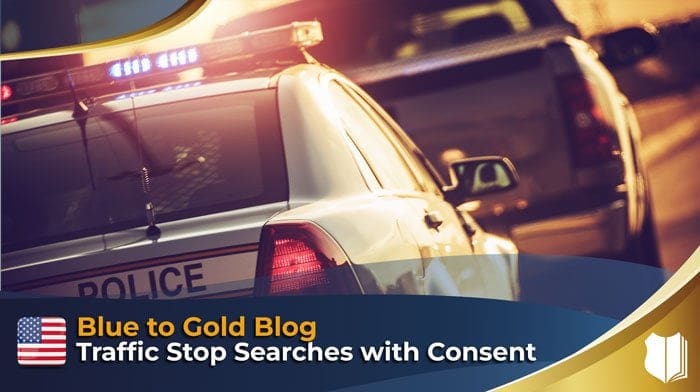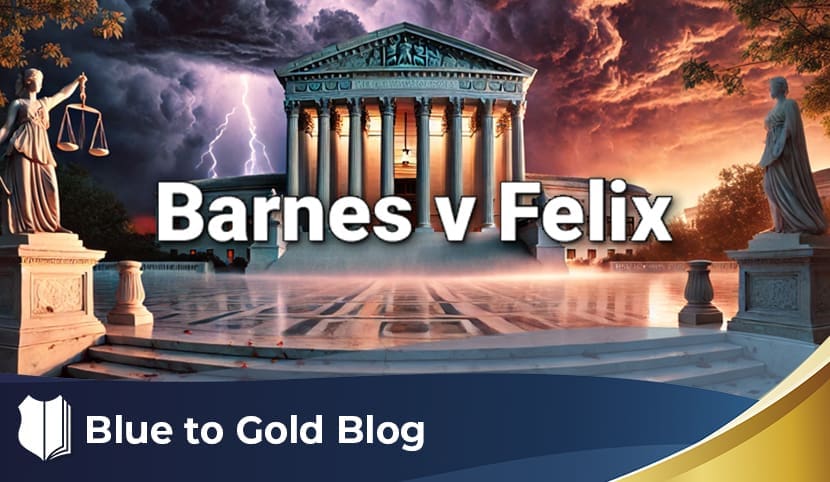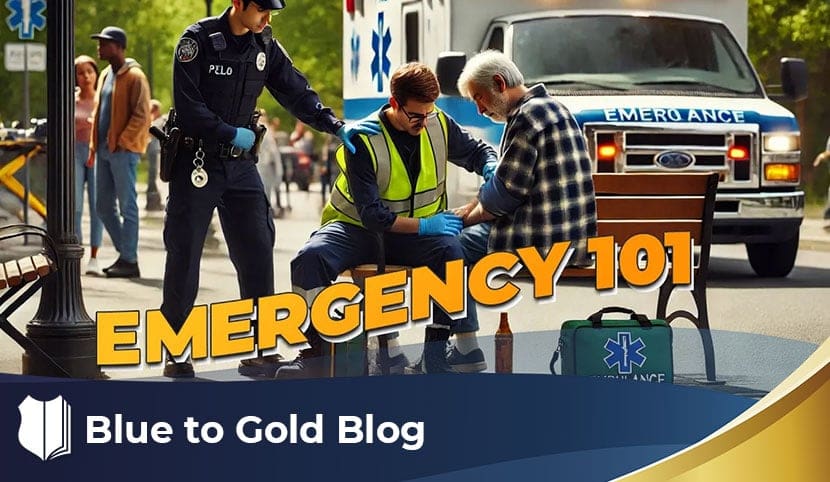Here’s a question from Texas. The officer says, If I get consent to search a vehicle, does the traffic stop have to end before I can search? And the answer is”No.”
Consent includes with it the agreement to extend the traffic stop. Does that make sense? We know that when it comes to traffic stops, the scope of the stop is determined by its mission. Which means, why did we stop this person?
If we stopped the person for speeding, the scope is a speeding investigation. We do not get a free drug investigation, right? So that’s what it is now; a speeding stop.
Here, the officer says he actually built up reasonable suspicion for drugs, then asked for consent. And now he’s wondering, do I have to end the traffic stop and then do the search? The answer is “Absolutely not.”
In fact, that would be kind of silly. Because if you have reasonable suspicion for drugs, what you should do is actually put the original reason for the stop on ice. If you’re writing a ticket, you should probably stop writing that ticket, and now diligently pursue what the new issue is; the drugs and so forth. That’s actually what courts would want to see.
There’s a case out of Kansas, where the officer had reasonable suspicion pretty early into the traffic stop and did all of the traffic stop. Then, he started pursuing the drug investigation, and calling a dog later. The court threw out the evidence, because, “Hey, look, you were not diligently pursuing your reasonable suspicion.” That’s, a great point. Put the original reason on ice and then go from there.
Now, some states require reasonable suspicion before even asking for consent, like Oregon, and so forth. So just think about that.
But, even if you don’t have reasonable suspicion, the person giving you consent, is, again, consenting to extend the traffic stop. Here, the officer said that oftentimes, they’ll talk to the drivers and ask, “Is there any contraband in the vehicle?” and so forth. And they’re like, “No, do you want to take a look?” That is consent, obviously, and you can go with it.
If it adds time to the traffic stop, articulate that they gave you consent! Finally, if you do not have reasonable suspicion for criminal activity, what I strongly suggest is to end the traffic stop with the citation, warning, or whatever, and convert it to a consensual encounter. Then ask for consent. If they say, “Yes,” you’re good. If they say, “No,” let them go on their way.
I hope this is helpful to you. My goal in life is to teach every single officer about search and seizure. It’s a small goal, but that’s my goal. Until next time, my friends stay safe!








